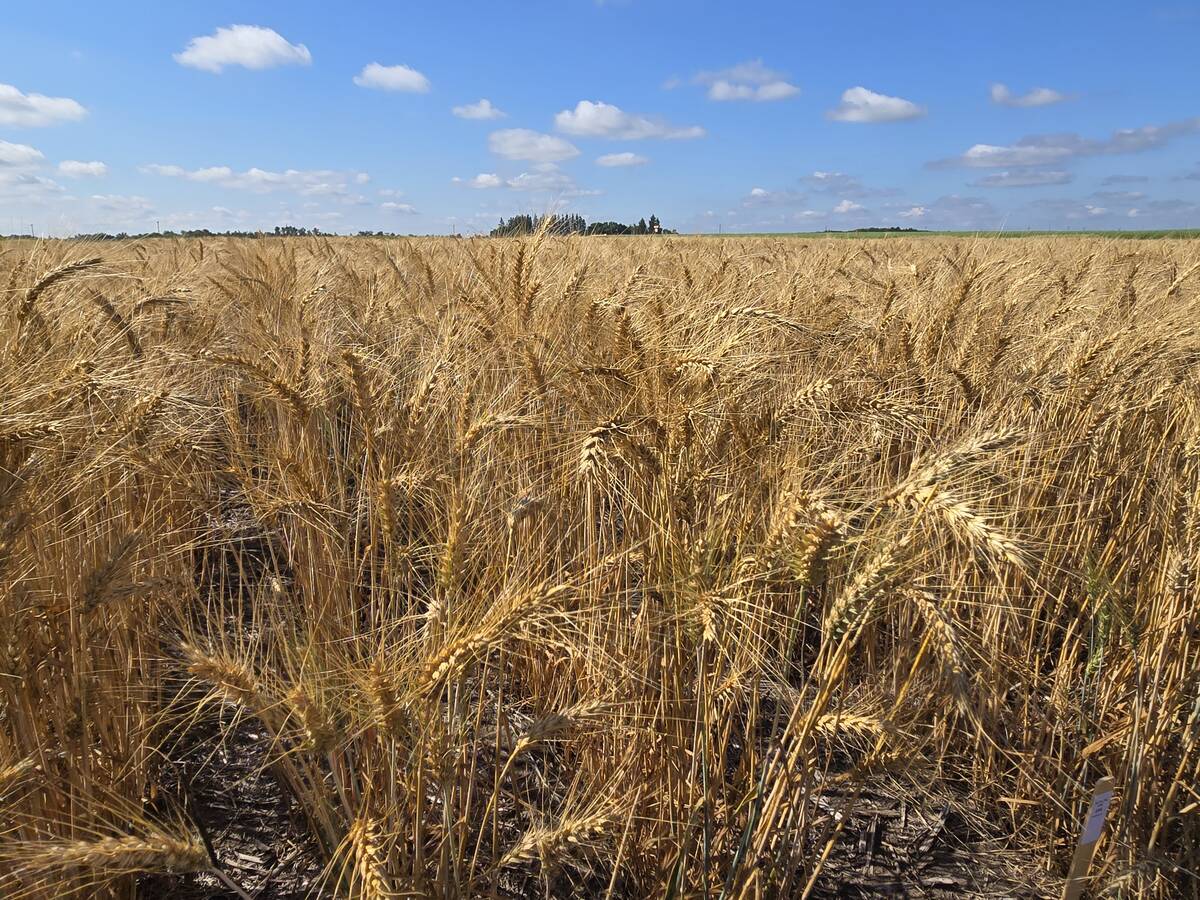International trade talks have been in stalemate since MPs voted unanimously seven years ago to preserve the supply management status quo.
As a result, the impact of the motion has yet to be tested.
Critics and supporters alike are watching Canada-European Union free trade talks and nascent Trans-Pacific Partnership negotiations to see if the government feels bound by the resolution and if it moves, what fallout follows.
“I do think some upcoming deals will be a test,” Canadian AgriFood Trade Alliance executive director Kathleen Sullivan said.
Read Also

Fall rye hits record high in Manitoba
Winter cereals 2025: More Manitoba fields grew fall rye in 2025 than ever before, but winter wheat slipped and, while spring stand survival was good, drought took its toll
“It hasn’t affected deals yet because there have been none, but it certainly is raised by people in the Cairns group and others when we meet with them, so in that way it has had an effect. I think we have handed people a stick on a silver platter to beat us with.”
André Bellavance, the Bloc Québécois MP who moved the motion Nov. 22, 2005, said the target at the time was an impending World Trade Organization meeting in Hong Kong, which appeared to offer a chance of breakthrough and compromise.
Instead, the meeting in December 2005 led to WTO stalemate that has only deepened over the years. Governments are now moving their attention to regional trade negotiations.
“In that way, I think the motion is more important now than it was then with CETA and TPP coming,” he said. “The government has its direction and industry will be watching.”
Former Canadian agriculture negotiator Mike Gifford said the parliamentary vote came, ironically, at a time when the dairy sector was signalling that some compromise was possible, although not on over-quota tariffs that give the industry stability to set production quota levels with the knowledge of what percentage of the market is available to imports.
“When I talked to supply management leaders privately, at least some of them, even post-2005 they recognized that at the end of the day, this was not a sustainable position, and that Canada would have to make some concessions,” Gifford said.
He was Canada’s chief agricultural negotiator in Geneva for many years, including talks on the Uruguay Round that led to the last WTO deal in 1993.
“But they would also say, quite accurately, that the politics within the farm community in Canada is such that we daren’t say this in public before the end game because God knows what will happen in the negotiation,” Gifford said.
“We can’t say anything publicly until it is clear that a deal is coming together, that it is clear we are where we were in 1993 again.”
Although it would deviate from the 2005 vote and cause a political uproar from the supply managed sector and opposition politicians, there is growing speculation that Canada could offer more access by increasing low-tariff imports brought in under tariff rate quotas. Proponents of the idea said that would be a concession without destabilizing the supply management system.
Liberal trade critic Wayne Easter, a self-described “fierce defender” of supply management who voted for the resolution but thought it was too restrictive, hints at that potential solution.
“The system cannot be negotiated away,” he said. “You can move on access, but you cannot move on tariffs and that’s what’s crucial to the system.”
Former trade negotiator Michael Hart does not under-estimate the power of the supply management lobby to dissuade government from approving any weakening of support for the system’s protections.
Hart, the Simon Reisman chair in trade policy at Ottawa’s Carleton University, was one of the lead negotiators in the Canada-U.S. Free Trade Agreement talks a quarter century ago.
“We tried to get the government to see this as an opportunity to deal with supply management, to use it as a quid pro quo to get rid of some of the American policies we didn’t like,” he recalled.
“It would have been a card worth playing, but dairy farmers were on the march immediately and before we even sat down to do serious negotiations, the government had caved on it.”
In the House of Commons, then-foreign affairs minister Joe Clark rose to answer an opposition question about “selling out” supply management.
“He said supply management is part of the very warp and woof of Canadian Confederation and once the minister said that, that was it.”














